Tibet
19th century
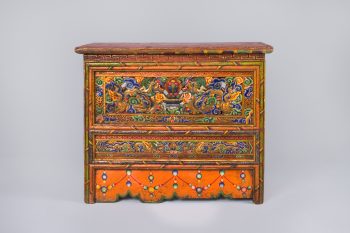
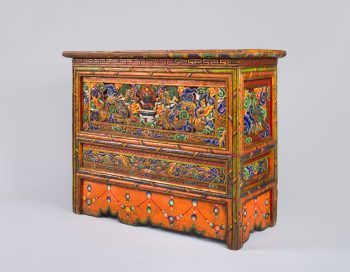
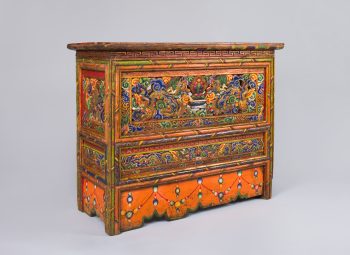
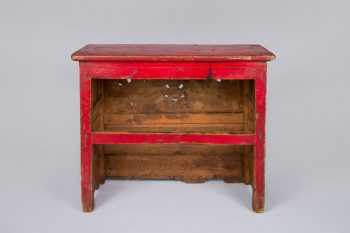
Tibet
19th century




Offering tables like this hold offerings and ritual implements for a lama or ritual specialist to use during ceremonies. The table is usually positioned to the right of the throne or seat of the lama performing the ritual. Offering tables vary in height and purpose in Tibetan religious settings. This example is a tall table that was deeply carved and then painted. The central upper section shows the symbolic three jewels flanked by dragons and cloud motifs. Carvings imitating bamboo, a square knot, and textile designs decorate the rest.
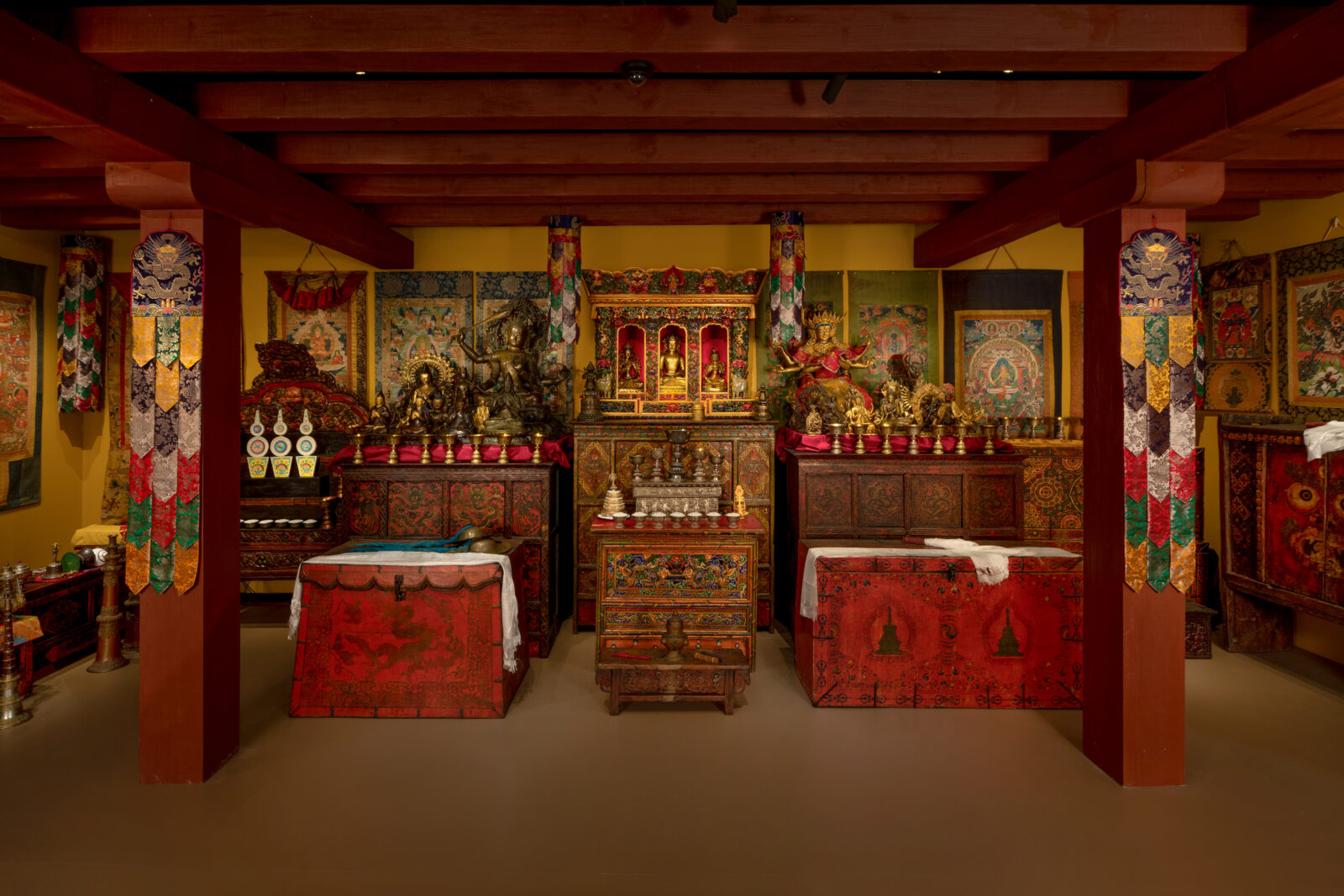
Photo by Dave de Armas
Prescribed practices that carry symbolic meaning and value within a specific tradition and are intended to attain a desired outcome. Rituals are usually done as part of a ceremony or regular routine.
Today, Tibetans primarily inhabit the Tibetan Plateau, situated between the Himalayan mountain range and the Indian subcontinent to the west, Chinese cultural regions to the east, and Mongolian cultural regions to the northeast. During the 7th to 9th century, Tibetan rulers expanded their empire across Central Asia, and established Buddhism as the state religion.
Get the latest news and stories from the Rubin, plus occasional information on how to support our work.